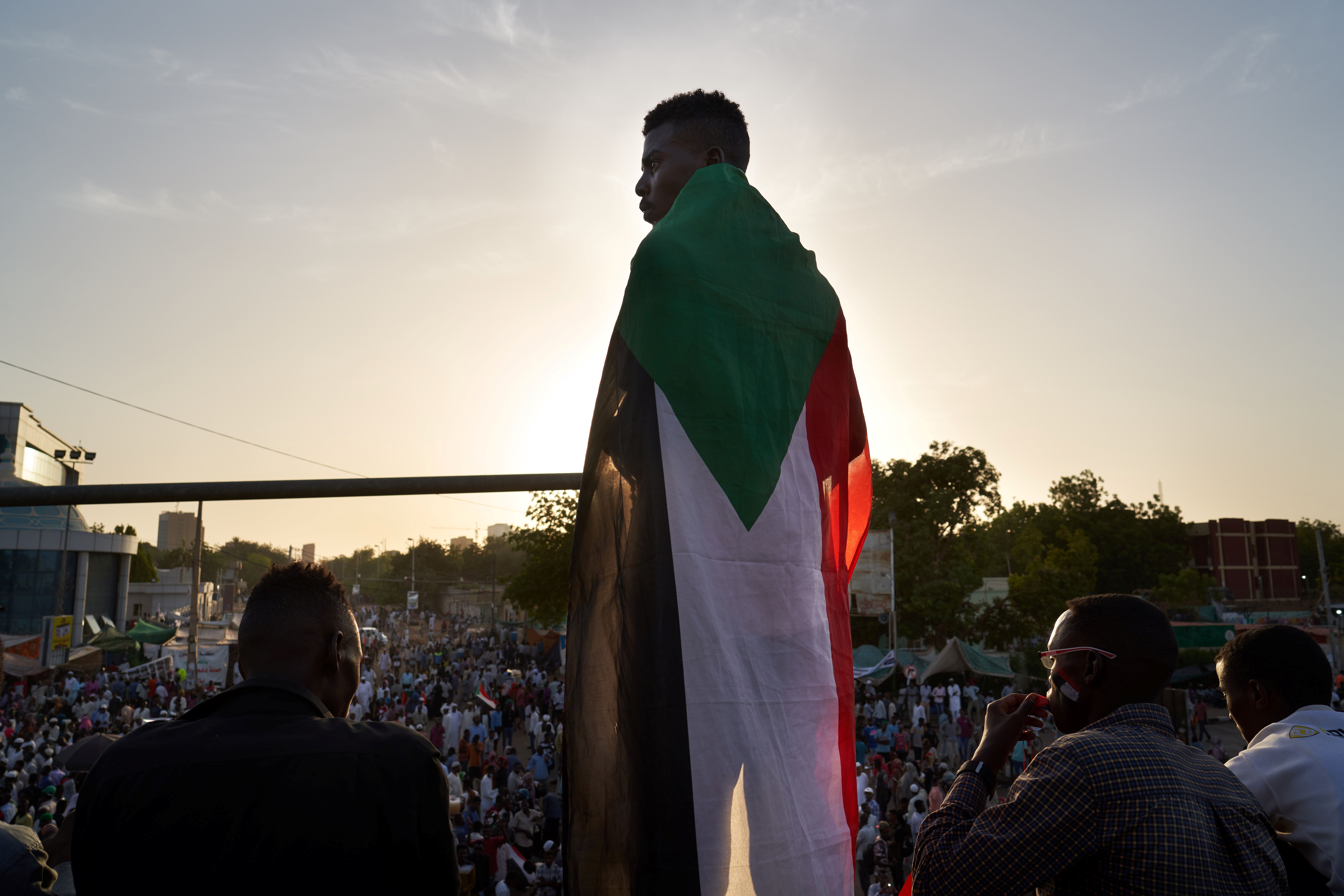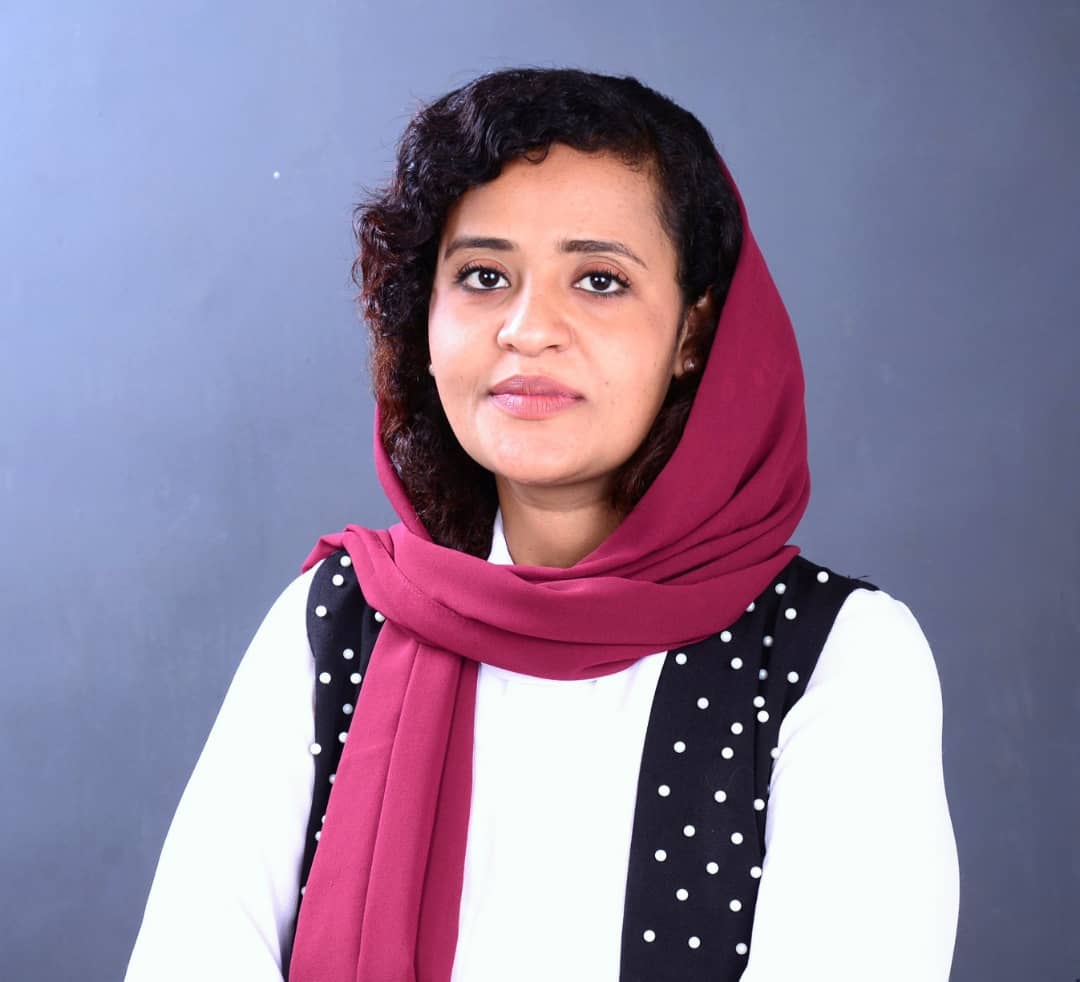بدأت رحلتي في الصحافة الورقية منذ السنة الثانية بالمرحلة الجامعية. كنت أراها مهنة رسالية، مشغولة بقضايا الجمهور، وتستند إلى قيم مهنية صارمة. لم يكن الدافع وراء انضمامي إليها مجرد بحث عن وظيفة، بل كان التزاما أخلاقيا تجاه نقل الحقيقة وصناعة الوعي، ولكن طموحي سرعان ما اصطدم بواقع المؤسسات الصحفية التي عملت بها، حيث كانت النظرة إلى الصحافة بوصفها مشروعا اقتصاديا، في الوقت الذي كنت أراها فيه رسالة ومسؤولية.
لم أكن وحدي التي عاشت هذا الصراع؛ فقد ظل كثير من الصحفيين مخلصين للمهنة حتى وإن كان العائد المادي زهيدا، ولكن هذا الطموح يقابله في المرحلة الحالية الموسومة بالصراع المسلح تراجع الصحافة عموما، ولا سيما الصحافة المكتوبة.
شهدت الصحافة الورقية السودانية تراجعا حادّا خلال العقد الأخير؛ ففي ذروة انتشارها، كانت بعض الصحف المؤثرة توزع 100 ألف نسخة، وكان ينظر إليه بأنه رقم كبير، ليتقلص فيما بعد ليتراوح بين 10-15 ألف نسخة.
قبيل سقوط نظام البشير، كان المشهد الصحفي يعج بأكثر من أربعين صحيفة، بين سياسية ورياضية، على الرغم من قلة إمكانياتها وما واجهته من قمع ومصادرة واعتقالات ورقابة قبلية أسهمت في تغيير النظام. بعد لحظة السقوط سنة 2019، تقلص العدد إلى ثماني صحف فقط، في ظل هيمنة وسائل التواصل الاجتماعي وتراجع الصحافة الورقية عالميا.
هكذا، باتت المؤسسات الصحفية تعاني للحفاظ على استمراريتها، فقد اضطر معظمها إلى تقليص كوادره لإصدار أعداد صغيرة.
مع اندلاع الحرب، في الخامس عشر من أبريل/ نيسان 2023 توقفت الصحافة الورقية كليا وتحول بعضها إلى نُسَخPDF، واحتفظت الصحف الورقية بالنشر في مواقعها الإلكترونية ملتزمة بمبادئ المهنة وأخلاقياتها. لم يكن أمام الصحفيين سوى اللجوء إلى الإعلام الإلكتروني سواء من خلال العمل لدى الآخرين أو إنشاء منصات خاصة بهم. كنت جزءا من هذه الموجة، وشَهِدت كيف أصبح إنشاء موقع إلكتروني أمرا سهلا وغير مكلف، ولكنه في الوقت نفسه ليس أكثر أمانا للصحفيين، بل أشد خطورة أمام انعدام الاستقرار السياسي والاقتصادي وغياب التمويل الكافي لعمل المواقع.
لم يكن أمام الصحفيين سوى اللجوء إلى الإعلام الإلكتروني سواء من خلال العمل لدى الآخرين أو إنشاء منصات خاصة بهم. كنت جزءا من هذه الموجة، وشَهِدت كيف أصبح إنشاء موقع إلكتروني أمرا سهلا وغير مكلف، ولكنه في الوقت نفسه ليس أكثر أمانا للصحفيين، بل أشد خطورة أمام انعدام الاستقرار السياسي والاقتصادي وغياب التمويل الكافي.
بعد حرب السودان تقطعت السبل بالصحفيين ما بين نازح ولاجئ وعاطل عن العمل، ما جعل عددا كبيرا منهم يعمل على تأسيس مزيد من المواقع الصحفية بصورة منفصلة أو بالشراكة بين مجموعة صحفيين.
تشير إحصاءات جمعية الصحافة الإلكترونية إلى وجود أكثر من 500 موقع صحفي إلكتروني، ولكن الفاعلة منها لا تتعدى العشرات، بعضها حصل على الشرعية عبر التسجيل التجاري أو مراكز الخدمات الصحفية، ولكن معظمها غير مسجل رسميا.
اليوم وأنا أنظر إلى تلك التجربة، أدرك أن الصحافة في السودان لم تفقد فقط شكلها الورقي، بل فقدت أيضا بعض تقاليدها المهنية في ظل "الانفلات الرقمي"، ومع ذلك يظل السؤال مطروحا: كيف يمكننا نحن الصحفيين استعادة دورنا المهني وسط هذا القطاع؟
إعادة تأهيل؟
منذ ظهور الصحف الإلكترونية السودانية مطلع الألفية الثالثة، رافقتها تحديات بنيوية ظلت متلازمة معها تتعلق بضعف التطور التكنولوجي وعتاقة المناهج الدراسية وعدم قدرة الصحفيين خاصة المنتمين للصحافة المكتوبة على التحول الرقمي، ولكنها تفاقمت بصورة غير مسبوقة خلال العامين الماضيين؛ لذلك فإنها بحاجة إلى عملية تأهيل شاملة، لأن كثيرا من العاملين في المواقع الصحفية يفتقرون إلى الخبرة الصحفية، خصوصا على مستوى مهارات التحرير الأساسية والتمكّن من أدوات السرد الصحفي والتحقق من المعلومات.
بالنسبة لصلاح باب الله، رئيس تحرير موقع "توتيل نيوز"، فإن بعض المواقع تركز على الإثارة على حساب الحقيقة والحيادية، كذلك فإن غياب الخبرة الصحفية لدى بعض العاملين أسهم في نشر خطاب الكراهية من دون إدراك لخطورة ذلك، خصوصا خلال الحرب الحالية.
الصحفي أحمد حمدان، سبق له العمل في عدة بمواقع إلكترونية، ومن واقع تجربته فإن بعض المواقع تعمل بلا ضوابط مهنية أو قانونية؛ إذ إنها تنافس وسائل التواصل الاجتماعي على المحتوى المنشور وما يتضمنه من تضليل وتحريض وإثارة كراهية.
والملحوظ أن عددا كبيرا من المواقع شغّل عاملين لم يسبق لهم أن مارسوا الصحافة، متوسلين بالنسخ واللصق ونشر الشائعات المتداولة على مواقع التواصل الاجتماعي من دون اتباع آليات التحقق لقلة الخبرة والتحيز. بيد أن مواقع أخرى اختارت أن توظف صحفيين بأجور زهيدة، مع ملاحظة أن القائمين عليها لا ينشرون بيانات شفافة عن المنح التي يتلقونها.
معضلة ضعف الأجور، تنعكس وفق أحمد القاسم، مدير قسم الأخبار بموقع "تسامح نيوز"، على جودة المحتوى المنشور، في ظل انعدام الرقابة الذاتية وغياب جسم مهني ينظم عمل الصحفيين.
الملحوظ أن عددا كبيرا من المواقع شغّل عاملين لم يسبق لهم أن مارسوا الصحافة، متوسلين بالنسخ واللصق ونشر الشائعات المتداولة على مواقع التواصل الاجتماعي من دون اتباع آليات التحقق لقلة الخبرة والتحيز. بيد أن مواقع أخرى اختارت أن توظف صحفيين بأجور زهيدة، مع ملاحظة أن القائمين عليها لا ينشرون بيانات شفافة عن المنح التي يتلقونها.
عبد العزيز النقر، نائب رئيس تحرير صحيفة السوداني الدولية، يرى أن خروج عدد من الصحفيين الغاضبين على حال المهنة دفعهم إلى إنشاء مواقع إلكترونية مجاراة للتطور التكنولوجي، ولكن "بعضها انحرفت عن المهنية ولجأت إلى الابتذال الصحفي لوجود أجندات متعددة وراء تأسيسها". وليس غريبا أن تتفرخ ظاهرة موقع "الرجل الواحد" المسؤول عن كل شيء بسبب غياب معايير وشروط تؤطر قانونيا ومهنيا عملية إنشاء المواقع كالتي تلزم ملاك الصحافة المكتوبة بتشغيل 15 صحفيا على الأقل.
يتصف عمل هذه المواقع بغياب تعدد القوالب الصحفية مكتفية بالأخبار التي تشكل العمود الفقري، تليها بعض التقارير غير المنتظمة، بينما يختفي التحقيق الصحفي وتظهر المقالات ومقالات الرأي غير المستندة إلى اشتراطات مهنية وموضوعية يكتبها غير مزاولي المهنة ولا تخضع لمراجعة محتواها.
ولمجابهة تلك التحديات، تركز نقابة الصحفيين في برامجها على تدريب الصحفيين على الالتزام بأخلاقيات المهنة. ويرى نقيب الصحفيين السودانيين، عبد المنعم أبو إدريس، أن النقابة تعمل على تدريب الصحفيين العاملين بالصحافة الإلكترونية وإلزامهم بميثاق شرف مهني يضمن الالتزام بأخلاقيات المهنة، كذلك بدأت حوارات مع ملاك بعض المواقع بشأن تحسين الأجور ووضع لائحة تتضمن عقودا تحفظ حقوق الصحفيين".
ورغم أن مجلس الصحافة والمطبوعات رفض منذ البداية وضع تشريع ينظم الصحافة الإلكترونية، فإن جمعية الصحافة الإلكترونية قادت مجهودات، ولكنها لم تكلل بالنجاح؛ فالقانون بالنسبة للجمعية ليس أداة قمعية لعقاب الصحفيين وفي يد جهات معينة، بل وسيلة لتعزيز مصداقية المواقع الإلكترونية، وحمايتها من التدخلات، وتنظيم النزاعات المهنية وضمان حقوق العاملين فيها.
الإطار التشريعي
بعد الإطاحة بنظام البشير بثورة ديسمبر/ كانون الأول 2019، وما رافقها من غياب الإطار القانوني لإنشاء نقابات جديدة، تأسست جمعية الصحافة الإلكترونية السودانية بموجب قانون العمل الطوعي الإنساني في سبتمبر/ أيلول من العام 2020 لتشكل مظلة قانونية للصحفيين العاملين بالصحافة الإلكترونية وتمكنهم من تنظيم أنشطتهم من الورش التدريبية والمشاركة المجتمعية. وفي منتصف العام الماضي، تأسست رابطة الصحافة الإلكترونية التي تضم عشرين موقعا إلكترونيا، وتعمل على دعم الصحفيين.
وكيل وزارة الإعلام السابق، نصر الدين أحمد، يقول لمجلة الصحافة إن عدم استقرار الأوضاع السياسية خلال السنوات الماضية حال دون وضع قانون ينظم عمل الصحافة الإلكترونية، ولكن وزارة الإعلام بصدد القيام بذلك، والمشروع قيد الإعداد.
تأسست جمعية الصحافة الإلكترونية السودانية بثلاثة عشر موقعا "إلكترونيا" وثلاثة وثلاثين صحفيا، بينما يصل عدد أعضائها الحاليين إلى أكثر من 450 صحفيا و70 موقعا إلكترونيا، حسب رئيس الجمعية عبد الباقي جبارة. تتمحور أهداف الجمعية حول تنظيم قطاع الصحافة الإلكترونية وتطويره، من خلال برامج تدريبية نوعية، وبناء شراكات استراتيجيةٍ مع جهاتٍ مختصة.
يواجه الصحفيون تحديات كبيرة في الولوج إلى المعلومات الدقيقة، بسبب عدم تعاون بعض المؤسسات الحكومية وقصور بعض القوانين السودانية المُنظمة للصحافة التي تعرقل عمل الصحفيين وتقيد حريتهم في التعبير، وبسبب التشريعات المتعددة التي تُحاكم الصحفيين، مثل قانون الصحافة لعام 2009، وقوانين الأمن، والقوانين الجنائية، وقانون جرائم المعلوماتية الذي يُثير جدلا بشأن التمييز بين الصحفيين والناشطين على مواقع التواصل الاجتماعي.
يواجه الصحفيون تحديات كبيرة في الولوج إلى المعلومات الدقيقة، بسبب عدم تعاون بعض المؤسسات الحكومية وقصور بعض القوانين السودانية المُنظمة للصحافة التي تعرقل عمل الصحفيين وتقيد حريتهم في التعبير، وبسبب التشريعات المتعددة التي تُحاكم الصحفيين، مثل قانون الصحافة لعام 2009، وقوانين الأمن، والقوانين الجنائية، وقانون جرائم المعلوماتية الذي يُثير جدلا بشأن التمييز بين الصحفيين والناشطين على مواقع التواصل الاجتماعي.
ليست الجمعيات الصحفية سوى كيانات لا تملك سلطة مُعاقبة جنائية، وإنما تقتصر عقوباتها على ما هو مُنصوص عليه في دساتيرها ولوائحها الداخلية، بينما يمارس الجمهور رقابة شديدة على المحتوى سواء بالتقييم أو بالضغط.
استثمرت المواقع الإلكترونية هذا الفراغ لتسهم في نشر معلومات كاذبة وترويج أجندات أطراف معينة، بينما كان لمنصّات أخرى دور إيجابي في فضح جرائم الحرب؛ لذلك لا بد أن تُحاسب الصحافة الإلكترونية على أي دور سلبي لها، خلال فترة الحرب.
ولعل التحدي الأكبر الذي يواجه المواقع الإلكترونية، هو الاستمرارية والالتزام بالمهنية والابتعاد عن التركيز على الصراعات السياسية في المركز فقط مقابل الاهتمام بالقصص الإنسانية.








































